| BACKGROUND
SCREENING NEWS |
Are
Bad Background Checks Costing Jobs?
A new report
says FBI's criminal records aren't always accurate and could
cost innocent Americans their jobs. Increasingly employers are
turning to the FBI's criminal records to do background checks
on potential and even current employees due to more and more
laws on the federal and state levels that allow access to the
FBI background checks by various government agencies. Note that
employers can not directly access the FBI criminal records.
The number
of jobs requiring FBI background checks skyrocketed after 9-11.
The problem is that these records often contain mistakes that
can lead to innocent people not getting jobs for which they
are qualified and even losing jobs they already have according
to a new report from the National Employment Law Project. According
to the report, roughly 17 million FBI background checks were
conducted for employment and licensing purposes in 2012. That's
six times the number conducted just a decade ago.
Read
more

Bring
Back the Box?
In 2010,
the California State Personnel Board mandated that the state's
civil-service job applications would no longer seek information
pertaining to criminal backgrounds. However, the state may be
wishing it had a do-over on that one. Perhaps asking Carey Renee
Moore if she was ever convicted of a felony would have precluded
her from getting another job with the state after a two-year
stint in jail on felony grand theft charges. Moore's decision
to resign before being fired and the fact that no one asked
criminal background-related questions enabled her to fly under
the radar and land a job despite her past. California is far
from the only place where questions surrounding the criminal
records of employees and/or job applicants are restricted. The
New Jersey Senate, for example, recently introduced The Opportunity
to Compete Act, which put the Garden State in the company of
more than 40 cities and counties-including Boston, Chicago,
Detroit, New York, San Francisco and Seattle-seeking to "ban
the box" that asks about criminal histories on job applications.
So, it's safe to say we're almost certain to see more cities
pursue similar initiatives. But it's also a good bet there is
at least one employer in California right now who, in light
of the Moore debacle, wouldn't mind bringing the box back.
Read
more

NAPBS
Celebrates Ten-Year Anniversary at Annual Conference
650 background screening professionals gathered in Phoenix,
Arizona from September 15-17, 2013 to participate in the National
Association of Professional Background Screeners (NAPBS) annual
conference. The association's ten-year anniversary was a major
theme of the conference, as attendees celebrated association
milestones, including the rapid growth it has experienced over
the years.
"As an
association representing the interests of nearly 800 companies
worldwide that offer tenant, employment and background screening
and related services, we have come a long way together in a
relatively short time, thanks to the shared vision of our members
who focus on finding solutions to the challenges we face," said
NAPBS Chair Judy Gootkind. "In the past ten years, we've been
successful in finding our voice, creating best practices, and
continually moving forward in our efforts to ensure our members
operate with the highest degree of integrity and professionalism."
Read more

CFPB
Issues Warning on Furnisher's Duty to Investigate Disputes
The Consumer
Financial Protection Bureau (CFPB) has issued a bulletin to
companies that furnish information to CRAs reminding them of
their obligation under the FCRA to investigate consumer disputes
forwarded by a CRA and "review all relevant information" relating
to the dispute. In the bulletin, the CFPB warns that it will
take appropriate supervisory and enforcement actions to address
furnisher violations of the FCRA or other federal consumer financial
laws, including requiring restitution to harmed consumers. The
CFPB expects furnishers to have reasonable systems and technologies
in place to handle notices of disputes received from CRAs and
information regarding disputes, including documentation forwarded
by CRAs. The CFPB takes the position that a furnisher's FCRA
duty to review "all relevant information" relating to a dispute
requires the furnisher to review and consider all of its own
information relating to a dispute as well as all documents that
a CRA includes with a notice of dispute or transmits during
the furnisher's investigation. In the bulletin, the CFPB outlines
what it generally expects furnishers to do to comply with the
FCRA's requirements. Furnishers not currently meeting the CFPB's
expectations are advised to "take immediate steps" to comply.
Read more

Military's Background Check System Failed to Block Gunman
with a History of Arrests
The military's
beleaguered background-check system failed to block Navy Yard
gunman Aaron Alexis from an all-access pass to a half-dozen
military installations, despite a history of arrests for shooting
episodes and disorderly conduct. Alexis, a military contractor,
used his secret-level clearance to gain entry to the Washington
Navy Yard, where officials said he gunned down a dozen people
before being killed by police. The revelations about Alexis's
troubled past - and his ability to pass the government's security-check
system - prompted multiple examinations into how background
checks are conducted and how long a security clearance can last
without review. President Obama directed his budget office to
conduct a government-wide review of security standards for contractors
and employees across federal agencies. Defense Secretary Chuck
Hagel also ordered a broad review into security and access to
military installations worldwide. The private contractor that
most recently employed him pointed the finger at the Defense
Department, which defended its handling of the case. The Defense
Department said the latest background check and security clearance
confirmation were in late June of 2013 and revealed no issues
other than one minor traffic violation.
Read more

Did
you know?
More than
200 M mobile workers will using mobile business apps in 2013
Source:
Strategy Analytics, 2013



| BACKGROUND
SCREENING NEWS - continued |
Preemployment
Screening and Social Media
While it's
not a standard practice to consider potential employees' social
media presence during the application process, it might become
so in the future as technology continues to improve and people
spend more time interacting online. This was the focus of an
ASIS International Information Asset Protection and Pre-Employment
Screening Council (IAPPES) conference call. "It's a reality
that that data trail is going to start to be crunched and munched
by computers and people are going to start making decisions
on those things," says Dr. Charles Handler, executive scientist
for Logi-Serve, LLC. Handler says it's only a matter of time
until people in charge of making hiring decisions begin to use
applicants' LinkedIn and Facebook profiles to evaluate them,
which could lead to legal consequences. And while thirty six
states have introduced laws, or have legislation pending that
prevent employers from requiring employees to provide them with
their social media account passwords after they're hired, there
is still a lack of legislation about using social media in the
hiring process, specifically when using it as a hiring disqualifier.
Handler says that companies need to hold all of their employment
screening tools to a higher standard and ensure that applicants
are being evaluated in a standardized way that tests the skills
that are critical to successful job performance.
Read
more

Tenant
Screening Laws Update: Passing Background Check Costs to the
Applicants
The states
of Washington and Oregon recently enacted laws in connection
with tenant screening. Among the provisions in both Washington's
RCW §59.18.257 and Oregon's OAS §90.295, is that the
entire cost of the background check can be charged to the applicant,
if the screening is performed by a consumer reporting agency
(CRA). However, if the landlord conducts the background check,
it may not charge in excess of the customary fees of the CRAs
in its geographical area. Notably, California's Civil Code §1950.6(b)
provides that a landlord cannot charge (or pass-through) to
the applicant more than $30 for a background check. This application
screening fee may be adjusted annually by the landlord or its
agent commensurate with an increase in the Consumer Price Index.
(The current adjusted amount is $41.50.)
Read more

Tenants Denied Housing over Old Convictions Settle Lawsuit
Over Background Checks
A company
that screens tenants for rental housing has agreed to pay $150,000
to settle a lawsuit over its background check practices. The
class-action case was filed in April by a Kent woman who was
denied rental housing based on drug convictions that were 17
and 24 years old. Under state law, such background checks aren't
supposed to include cases unless the conviction, sentence or
parole period occurred within the past seven years.
Although
the tenant screening company denied any wrongdoing, under the
settlement 273 Washington residents whose screening reports
included criminal history information older than seven years
will receive payments from the settlement.
Read more

NJ
Passes a Business-Friendly Workplace Social Media Privacy Law
The State
of New Jersey finally has itself a workplace social media privacy
law, becoming the 12th state to restrict company
access to prospective and current employee social media. Like
similar laws in other states, this new law prohibits employers
from requiring prospective and current employees from disclosing
online usernames and passwords. It's worth noting that there
are severable notable differences in the new NJ law, which loosen
the restraints on local companies: Many public employers which
deal in public safety are exempted; Any employer may require
that the login/password of any account maintained for business
purposes of the employer -- even if created by a current or
prospective employee -- be disclosed; Employers can also demand
login/password as part of several categories of workplace investigations;
Employers can ask a current or prospective employee if he/she
has a social media account; and Any aggrieved current or prospective
employee may report an alleged violation to the Commissioner
of Labor and Workforce Development, but cannot bring a private
action against the employer. The new law goes into effect on
December 1.
Read more

Small Mistakes With Employee Background Screening Can Cause
Big Problems
Small employee
background screening mistakes continue to give rise to large
class actions with big settlements. If you obtain background
screening reports from a third-party agency regarding your job
applicants or employees, and have not reviewed your background
screening policy and practices in a while, now is a good time
to do so. Here are four things to look for: 1. Are you supplying
job applicants and employees with the correct version of the
federal notice entitled "A Summary of your Rights Under the
Fair Credit Reporting Act"? The new version references the Consumer
Financial Protection Bureau throughout the notice while the
old version references the Federal Trade Commission. 2. Does
your background screening consent form ("Disclosure and Authorization")
contain a release of liability? 3. Do you provide BOTH a pre-adverse
action letter and a post-adverse action letter when excluding
an individual based upon a background screening report from
a third-party vendor, and do those letters contain the correct
information? 4. Do you have a blanket policy that excludes all
convicts or felons? It is important that employers update their
background screening policies to reflect recent changes, and
consult with counsel before excluding an individual based upon
a background screening report.
Read more

Massachusetts
Employment Screening Laws Could Impact Criminal Records and
Credit Checks
The Joint Committee on Labor and Workforce
Development , recently reviewed H. 1731 and H. 1744 . It should be noted that
House Bill 1744 could be construed to ban all criminal histories
for employment in the state and H. 1731 would largely ban all
credit histories for employment in the state.
CDIA's
vision of a successful outcome is to (a) amend H. 1731 to look
more like Connecticut law and allow for wider uses of credit,
and (b) change "consumer report" to credit in H. 1744 and then
make that bill look like Connecticut law as well. Connecticut
law, Sec. 31-51tt , allows the use of
credit histories for a wide variety of positions where its use
is commonly accepted as significant for employers.
While
the committee may be willing to change "consumer report"
to credit and to make other changes for allowing for additional
credit use, such changes will not likely happen without broad
support for these amendments from the business community.
Read
H 1731 , Read H. 1744 .

| Welcome
to the U.S. Legal Challenge Question! |
Sponsored By:


As the background
screening industry continues to get more competitive the firms
that will ultimately succeed will be those that create competitive
advantage through their people by offering continuous learning
opportunities to heightened their knowledge and capabilities.
We believe that having employees that are very knowledgeable about
the legal landscape of background screening is essential to continued
success.
We are grateful
to Larry D. Henry who began his law career with the Army JAGC
where he tried over 2,000 cases. After the Army he relocated to
Tulsa. In 1981, the founder of DAC Services contacted Mr. Henry's
firm for assistance in creating a background screening company.
Since Mr. Henry's practice was employment law, the firm believed
this fell within his area and as they say: "the rest is history".
His practice has kept him in continual contact with the background
screening industry, and he is a nationally recognized expert in
the area of background screening.
Mr. Henry's
practice is concentrated on employment law and in specific, background
screening of employees. He represents consumer reporting agencies
throughout the United States and two national trade associations.
He is the author of the Criminal Records Manual and the on line
reference site:CRAHelpDesk.com, and he is a frequent presenter
across the country on various topics dealing with background screening.
Please choose
your answer by clicking on it:

Current
List of Labs and IITF Meeting Minimum Standards for Federal Urine
Testing
The Department of Health and Human Services (HHS) notifies
federal agencies of the Laboratories and Instrumented Initial
Testing Facilities (IITF) currently certified to meet the standards
of the Mandatory Guidelines for Federal Workplace Drug Testing
Programs (Mandatory Guidelines). The Mandatory Guidelines were
first published in the Federal Register on April 11, 1988 and
require strict standards that IITF must meet in order to conduct
drug and specimen validity tests on urine specimens for Federal
agencies. To become certified, an applicant Laboratory/IITF must
undergo three rounds of performance testing plus an on-site inspection.
To maintain that certification, a Laboratory/IITF must participate
in a quarterly performance testing program plus undergo periodic,
on-site inspections. A notice listing all currently certified
laboratories and IITF is published in the Federal Register during
the first week of each month. If any laboratory or IITF certification
is suspended or revoked, the laboratory or IITF will be omitted
from subsequent lists until such time as it is restored to full
certification under the Mandatory Guidelines. If any laboratory
or IITF has withdrawn from the HHS National Laboratory Certification
Program (NLCP) during the past month, it will be listed at the
end and will be omitted from the monthly listing thereafter.
Read
more

Medical Marijuana and the Drug Free Workplace
An increasing
number of states have passed varying laws regarding marijuana
legalization and the use of medical marijuana. At the same time,
the federal government still maintains that marijuana use is illegal.
Businesses that operate under federal contracts or fall under
the Department of Transportation still must comply with drug testing
regulations, regardless of state laws. Medical marijuana use is
of special importance to employers, especially those who have
a drug testing program in place. Some state laws do not mention
their effect on the workplace, while others such as Arizona, Delaware,
Maine and Michigan include provisions that address marijuana and
the workplace. In states that allow medicinal marijuana, employers
may still lawfully prohibit employees from using marijuana during
work hours. Drug testing potential employees and those who are
already employed with your company is very important, and although
not a requirement under the Drug-Free Workplace Act of 1988 for
most industries, it is recommended, and can be an integral part
of your background check program. As the courts continue to update
laws on medical marijuana, HR departments need to obtain guidance
from local attorneys that specialize in labor laws to create drug
policies that protect both their business interests and employees.
Read
more



National
Drug Abuse Survey: Workplace Abuse Persists; Marijuana, Heroin
Use Gain
The Government's
results from the 2012 National Survey on Drug Use and Health:
Summary of National Findings and Detailed Tables, finds that 8.9%
of full-time employees and 12.5% of part-time employees, 18 years
of age and older, are current illicit drug users, while 18.1%
of unemployed adults in that age group are current illicit drug
users. The Survey, published by the Substance Abuse and Mental
Health Services Administration (SAMHSA) of the U.S. Department
of Health & Human Services contains an ominous reminder for
employers: "…most illicit drug users are employed. Of the
21.5 million current illicit drug users aged 18 or older in 2012,
14.6 million (67.9%) were employed either full or part-time."
The Survey suggests the need for continued vigilance against workplace
substance abuse. The only sure way of detecting abuse and addressing
it is by drug and alcohol testing using a lawful, common-sense
policy. While the popularity of certain illicit drugs may ebb
and flow, drug and alcohol abuse continue to pose hazards to workplace
safety and impede efficient operations. For many, only the threat
of loss of employment may propel them to enter a program that
can end a pattern of abuse and dependence.
Read more

Drug and Alcohol Testing and Accreditation Programs
NAADATP
- The Nationally Accredited for Administration of Drug and
Alcohol Testing Programs (NAADATP) program provides guidelines
for management of drug-free workplace programs. Employers will
also know that the provider is in full compliance with regulations.
View the NAADATP
application.
iDATIA
- The iDATIA® Accreditation program provides criteria that
follow proven U.S. standards, while adapting to international
policies and procedures. As the international community advances
their drug and alcohol testing practices, the iDATIA® program
will mirror this progress and expand its program.
Apply here

Why
is the DOT Taking so Long to Move on Hair Testing for Drugs?
The American
Trucking Associations used the National Transportation Safety
Board's stricter impaired-driving regulations as an opportunity
to again push for the DOT to move forward on a process to allow
motor carriers to collect hair samples for DOT-required drug testing
in lieu of the currently mandated urine testing process.
ATA said
it supports all of these steps. But in addition to strengthening
these measures, ATA President and CEO Bill Graves also again called
on DOT to permit hair testing for mandatory pre-employment drug
tests of commercial motor vehicle drivers.
"All we are asking is for DOT to allow this industry to use the
best available tools under the DOT-mandated drug and alcohol testing
program to make sure our roads are safe for all motorists," Graves
said.
The practice
of defeating and falsifying urine tests is widespread enough in
the trucking industry. Government Accountability Office undercover
investigators were able to use bogus commercial driver's licenses
at 24 drug-testing sites, proving that a driver could easily send
a substitute in with a fake ID. In addition, 22 of the 24 sites
did not follow testing protocols, which opened the door to further
cheating, GAO found.
Beyond cheating, urine testing is limited even if done properly.
Generally, it cannot detect use of heavier drugs longer than two
or three days after use. As a result, companies don't get an accurate
idea of what a driver does in his or her free time.
Read more

How
to Stop the In-House Data Thief
The highly
networked computer technology that has made companies more efficient
has also left them more vulnerable to threats from insiders intent
on stealing information or sabotaging a company's operations.
Companies looking to protect themselves from in-house data theft
can undertake a number of preventive measures. According to Carnegie
Mellon University's Software Engineering Institute, about half
of the companies surveyed each year since 2004 said they had experienced
at least one in-house breach in the previous year. These breaches
are further complicated by cloud storage, which may allow insiders
to steal larger amounts of information at a time. To mitigate
these risks, companies must implement layered protections. The
first of these layers should focus on identifying and limiting
access to the data and systems that are most vulnerable. Even
system administrators do not need to have full access to all systems.
Companies can also rely upon a variety of data-loss prevention
technologies that can perform functions such as preventing employees
from copying files to flash drives and other types of portable
storage media. Network monitoring is also necessary, as this allows
companies to quickly flag any suspicious activity and conduct
a thorough investigation to minimize any damage.
Read more

Are
Referees Still Important?
LinkedIn endorsements, online recommendations and more
fleshed-out social media profiles have become important elements
of understanding a candidate and evaluating them for a position
in today's world - and all of these exist outside of the traditional
resume. Due to these developments, some employers believe referees
and references are no longer relevant to recruitment. "Different
social media profiles and other information that is kept up to
date will provide a much richer experience than a [traditional]
resume can," Bryce Dunn, senior vice president at PageUp People.
Dunn elaborated on the activity of a candidate - such as their
posts on message boards relating to the profession - being more
telling of them and their skills than a resume. However, Nick
Deligiannis, managing director of Hays in Australian and New Zealand,
stated that online recommendations are not a substitute for traditional
references. Recruiters and employers should still be looking at
referees as the most complete and important sources of information
on candidates, as they will be able to demonstrate how a candidate
used their skills and experience to help benefit their previous
employers.
Read more


Public
Record Update
Sponsored by:
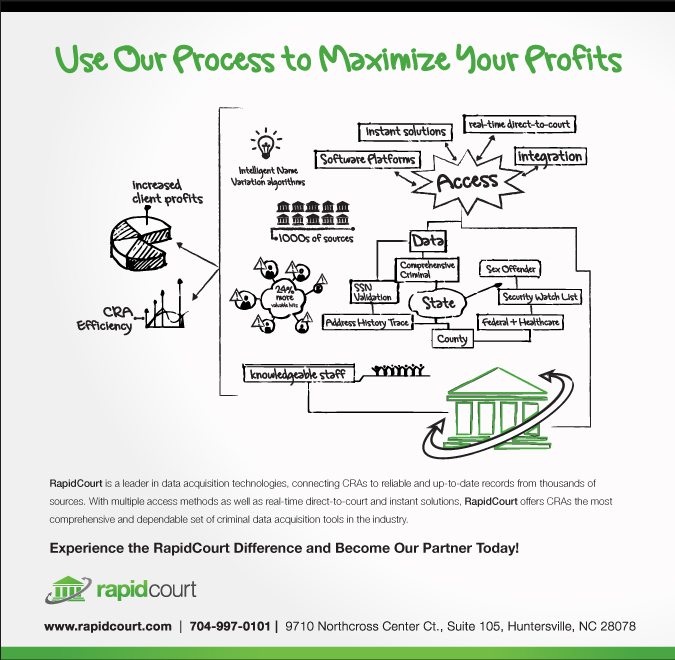
Public
Record Update
By Mike Sankey, PRRN
| National
Average - Court Fees for Name Searches |
BRB Publications
recently completed a statistical analysis to determine the national
average of fees charged by court personnel for performing a name
search of either the criminal or civil docket. The study included
4,731 criminal courts and 4,815 civil courts at the county level.
Per the stats below, quite a few courts (over 20%) refuse to perform
a name search for the public. They will refer a requester to an
online system or a state repository. Of course, if a case number
is given the court will pull the file.
Read
more
| Larry
Henry and BRB Publications Launch New HR Version of the
State Rules Register |
Mr. Larry
Henry and BRB Publications launch a new product The HR
Version of the State Rules Register at the NAPBS 2013
Annual Conference. It is designed very similar to a private label
product. Access is unlimited from the CRA's site - no log-in is
needed.
A CRA can
now provide their clients with an easy-to-use and up-to-date tool
showing individual state restrictions placed on HR, hiring managers,
and landlords.
See www.CRAHelpdesk.com for details!
| BRB's
FREE RESOURCE CENTER |
For the MOST
COMPREHENSIVE RESOURCE describing all access methods, restrictions,
fees, and search procedures on over 26,000 government and private
agencies visit the Public Record Research System (PRRS-Web) .
We provide the extensive details and in-depth data you will not
find doing a Google search!
For more
information contact Michael Sankey at mike@brbpublications.com
or visit www.brbpublications.com/updates.aspx

 Innovative Enterprises Appoints
Timothy Brothers as Vice President of Sales and Technology Innovative Enterprises Appoints
Timothy Brothers as Vice President of Sales and Technology
Innovative Enterprises, Inc., a strategic partner to the background
screening industry and expert provider of court research information
products, smart data solutions and ancillary services, today announced
that Timothy Brothers has been promoted to Vice President of Sales
and Technology.
Mr. Brothers joined the firm in 2012 as Director of National Sales,
bringing nearly two decades of industry experience serving the
CRA, mortgage reporting, consumer credit, tenant and employment
screening markets. He has served the National Association of Professional
Background Screeners in an active leadership capacity as a committee
co-chairman and on the NAPBS® board of directors. In his
new capacity as a member of the firm's senior management team,
Mr. Brothers will oversee Innovative's direct sales and marketing
efforts and provide leadership for the company's information technology
and data groups.
Read more

Women-Owned Data Facts Inc Celebrates 24 Years of Business
Data Facts
Inc- an NAPBS accredited Background Screening Company and one
of the nation's leading providers of background screening and
lending solutions-celebrates their 24th year in business. For
24 years they have been providing information lenders and employers
can trust and rely on to make sound lending and hiring decisions.
Data
Facts Inc. was founded in July 1989 by CEO, Daphne Large.
Having worked for Equifax Services since 1978, Daphne had a vision
to serve clients better through enhanced personal services. She
seized an opportunity to start Data Facts and offer clients what
others had only promised - the service they expected, consistently.
That commitment to service has not changed.
Daphne attributes
the success of Data Facts to their dedicated employees. They are
dedicated to our customers, to Data Facts and to each other. "I
have seen our competitors become complacent and even take business
for granted. Not at Data Facts. Not now, not ever. We know our
customers have many choices. We expect to earn their business
each and every day, and we will. These are not just words, we
live by them. At Data Facts, we believe if we take care of our
people, our people will take care of our customers and our customers
will take care of Data Facts. And they do."
Julie Wink
states "Industry experience has also been a key to our success.
The majority of our staff has tenure of over 10 years in either
lending solutions or background screening, with many having 20
years or more. The company benefits from this by maintaining an
extremely experienced team. It's a win for our customers and for
Data Facts."
Read more

Surf
Air and Cluso Investigation Partner to Ensure Exceptional Flying
Experience
Cluso Investigation
today announced its partnership with Surf Air, the country's first
all-you-can-fly, membership-based private air service, to provide
added peace of mind for members of the airline as they travel.
Together, Cluso Investigation and Surf Air have created and implemented
a world-class safety option even the largest commercial air carriers
cannot provide. Thanks to this partnership, every member is pre-screened
and background checked to ensure a high level of safety and security.
Cluso Investigation
pre-screening includes an identity cross-check, searches for U.S.
Federal District court criminal cases, and performs a comprehensive
search against over 100 global and terrorist watch lists provided
by government sources.
Read
more

S2Verify Joins Inc. Magazine 32nd Annual List of America's Fastest-Growing
Private Companies-the Inc. 500
S2Verify,
an employment screening firm, has announced its 2013 ranking of
No. 3 in the Human Resources category and 194 overall on the 32nd
annual Inc. 500 list. This puts S2Verify in a unique category
of elite firms representing the growth engine of the American
economy.
"Our success
over the last several years is attributable to our dedication
to help organizations of all sizes leverage process automation
to help simplify and streamline nearly all aspects of the hiring
process," said Bill Whitford, CEO of S2Verify.
"We are humbled
to be mentioned categorically with other great companies, and
this ranking proves our business model and our dedication to our
customers, employees and business partners," said Jim Zimbardi,
President of S2Verify.
Read
more

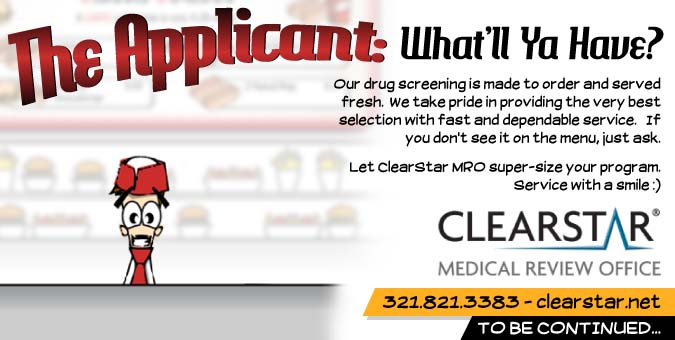

Conference
Board Employment Trends Index Increases Again in August
The Conference
Board Employment Trends Index (ETI) increased in August. The index
now stands at 113.54, up from 112.80 (an upward revision) in July.
The ETI figure for August is 4.5 percent higher than a year ago.
"The growth
of the Employment Trends Index (ETI) in recent months suggests
that employment is likely to moderately expand through the fall,"
said Gad Levanon, Director of Macroeconomic Research at The Conference
Board. "The rapid job growth in the first half of 2013 was faster
than we had expected given weak economic activity and only moderate
improvement in the ETI. The slowing down of employment in the
past two months brings the six-month trend to a more sustainable
rate."
Read more

Employers
Optimistic About Fourth Quarter Job Prospects Amid Continued Economic
Uncertainty
The latest Manpower Employment Outlook Survey indicates elevated
confidence for the final quarter of 2013 as U.S. employers report
a seasonally adjusted Net Employment Outlook of +13%, the strongest
fourth quarter Outlook since Quarter 4 2007 when the Outlook was
+19%.
Of the more
than 18,000 employers surveyed, 18 percent anticipate an increase
in staff levels in their Quarter 4 2013 hiring plans, while 8
percent expect a decrease in payrolls. According to the seasonally
adjusted survey results, the +13% Net Employment Outlook for Quarter
4 2013 is up from +12% during Quarter 3 2013 and from +11% during
the same period last year.
"We've seen
consistent, yet measured, momentum in employers' hiring plans
in a steadily improving market," said Jonas Prising, ManpowerGroup
President. "Employers have reached a level of confidence in navigating
unstable conditions, and the strength of the Quarter 4 2013 survey
data suggests a stronger close to 2013."
This quarter's
research shows the Outlook remains stable quarter-over-quarter
and is slightly elevated compared to last year at this time. Intent
to hire also continues to rise with 18 percent of employers indicating
an increase in staff levels for Quarter 4 2013. This is the highest
percentage of employers projecting an increase in hiring in the
fourth quarter since before 2009 when the number consistently
remained above 20 percent.
Read
more

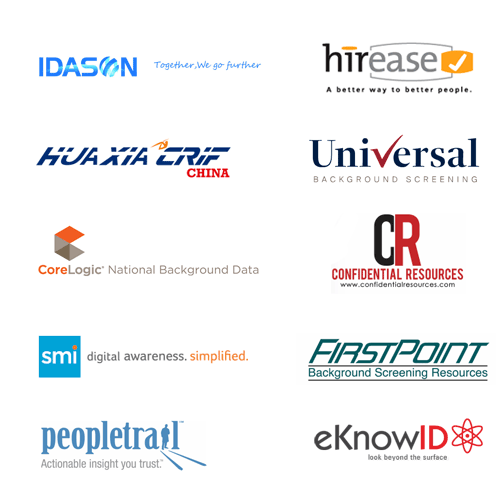

What
Can We Do For You in 2014 To Help You Exceed Your Revenue
Goals? |
Targeted
Marketing Support Services for the Background Screening Industry
PreemploymentDirectory.com
Online background
screening directory featuring background screening firms and suppliers
to the background screening industry. Basic, Gold, Platinum and
Diamond levels of advertising are available. Target audience is
the Human Resources, Talent Acquisition and Recruiting community.
Annual
Background Screening Industry Buyers Guide
An annual
print and electronic publication featuring U.S. and international
background screening firms, and timely informative articles. The
Guide is launched annually in June at the SHRM Annual Conference
and distributed to 20,000 plus human resources professionals.
Annual Suppliers to the Background Screening Industry Buyers Guide
An annual
print and electronic publication featuring suppliers to the background
screening industry. The Suppliers guide is distributed to our
database of more than 1,600 background screening firms and at
relevant professional trade shows.
The
Background Buzz
A monthly
e-newsletter distributed to the worldwide background screening
industry that offers comprehensive coverage of information and
news relevant to the screening industry. The e-newsletter is distributed
to more than 1,600 firms in the background screening industry
and accordingly, is an exceptional advertising venue to reach
background screening firms.
The
Special International Edition of The Background Buzz
A supplement
to the regular edition of The Background Buzz that is
published on a bi- monthly basis featuring global information
and news on background screening around the world.
eDirect
Mail Campaigns
On demand
e-blast service sent to our database of more than 1,600 firms
in the background screening industry. Each e-blast includes your
advertisement and one relevant article.
Media
Releases and Announcements
On demand
releases and announcements to targeted media outlets in the background
screening and recruiting industry.
Private
Label Newsletter Service
Custom designed
e-newsletter service. We create a custom designed e-newsletter
including recommending the name, designing the header, template
and providing the content. Distribution frequency options include
monthly, bi-monthly and quarterly.
See
the Marketing Portfolio that matches your market segment
:
1. U.S.
Background Screening Industry Marketing Portfolio
2. International
Background Screening Industry Marketing Portfolio
3. Suppliers
to the Background Screening Industry Marketing Portfolio

STOP
STRUGGLING WITH WRITING AND PUBLISHING YOUR NEWSLETTER: |

We can help
you have a high quality e-newsletter to help nurture your relationship
with your clients and attract new clients. Our customized newsletter
service will take over your newsletter task or create a new one
for you. We can manage the creation of your newsletter for you.
We are constantly
researching information to use for The Background Buzz and
you can put our research to use for you. Using the information
rich content from The Background Buzz (minus the ads
and competitors information) we will create a custom newsletter
for you.
Use your staff’s
time to do more valuable work and save all the hassle of researching
or writing articles, formatting and managing all the other ezine
tasks with our customized ezine process.
Contact Barry
Nixon at 949-770-5264 or at wbnixon@aol.com
for more information.

 Kevin Coy is a Partner in the Washington DC office of Arnall
Golden Gregory LLP. Kevin advises background screening
companies and other clients on a wide range of privacy and consumer
regulatory issues, including Fair Credit Reporting Act, Gramm
Leach Bliley Act, Drivers' Privacy Protection Act, and Dodd Frank
Act compliance issues, as well as data breach matters. Kevin also
represents clients with matters before the Federal Trade Commission,
the Consumer Financial Protection Bureau, and other consumer protection
agencies.
Kevin Coy is a Partner in the Washington DC office of Arnall
Golden Gregory LLP. Kevin advises background screening
companies and other clients on a wide range of privacy and consumer
regulatory issues, including Fair Credit Reporting Act, Gramm
Leach Bliley Act, Drivers' Privacy Protection Act, and Dodd Frank
Act compliance issues, as well as data breach matters. Kevin also
represents clients with matters before the Federal Trade Commission,
the Consumer Financial Protection Bureau, and other consumer protection
agencies.
Kevin can
be contacted at Kevin.Coy@agg.com
or 202-677-4034.
THE
WASHINGTON REPORT
September
2013
On
Capitol Hill
On September
12th, the Commission on Long Term Care issued its recommendations
for improving the Nation's system for providing long term care
services and supports (LTSS) to an estimated population of over
12 million Americans with functional impairments that rely on
LTSS to perform daily life activities. One of the Commission's
recommendations for the paid LTSS workforce (as opposed to family
caregivers) is that "the federal government work with states to
enable national criminal background checks for all members of
the LTSS workforce."
At
the CFPB
On September
4th, the Consumer Financial Protection Bureau (CFPB)
issued a Bulletin (2013-9) regarding FCRA furnisher obligations.
The Bulletin stated that the CFPB expects consumer reporting agencies
(CRAs) and furnishers to comply fully with their reinvestigation
obligations, "thereby promoting the accuracy and completeness
of information in the consumer reporting system."
At
the FTC
Federal Trade
Commission (FTC) Commissioners continue to express concern about
the activities of "data brokers" which they often define to include
consumer reporting agencies. Commissioner Julie Brill published
an op-ed in support of the "Reclaim Your Name" initiative, encouraging
the data broker industry to adopt a "user-friendly, one-stop online
shop" for individual consumers to discover which data that brokers
have amassed and how it is collected and used, as well as enable
consumers to correct errors in and prevent the sale of such data.
Brill stated, "We ought to demand the same sort of transparency
from the commercial data brokers that know much more about us
than we do about them."
The FTC is
expected to issue a report on data brokers sometime before the
end of the year. The attention that multiple FTC Commissioners
are affording the issue underscores importance that the FTC is
attaching to "data broker" issues.
Read
the full report

One
Site! Many Suppliers! |
VISIT
THE NEW SUPPLIER/PROVIDER SECTION ON
PREEMPLOYMENTDIRECTORY.COM
Looking
for the Top Suppliers in the Industry? Need to find a new Supplier?
Visit our VENDOR
SHOWCASE which features suppliers to the Background
Screening Industry.
Suppliers
to the Background Screening industry Guide Now Available!
Click
here or on image to get a copy
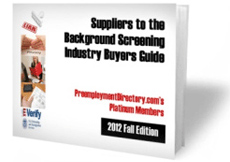
Contact
Barry Nixon at wbnixon@aol.com
for information on getting your firm listed in the

2013
Suppliers to the Background Screening industry Guide Coming Soon!

Report:
E-Verify Accuracy Improving
U.S. Citizenship
and Immigration Services (USCIS) have released the results of
the most recent Westat Survey conducted on the accuracy of E-Verify,
providing further validation that E-Verify is an accurate and
robust tool. Though the survey was completed in July 2012, the
results are finally being released to the public. Westat conducted
the accuracy survey on E-Verify by evaluating the E-Verify Transaction
Database. It's worth highlighting that employer activity while
logged into the E-Verify system is tracked and monitored by USCIS.
The survey found that E-Verify accuracy is improving since the
last survey released in 2009, which evaluated the tentative nonconfirmation
(TNC) rates. The TNC rate in this report declined from 0.7% to
0.3%. Where a secondary review of a TNC is conducted by USCIS,
the accuracy rate is 90% effective compared to a 58% effective
rate in the absence of secondary reviews. A substantial portion
of the survey was devoted to providing USCIS with recommendations
on how to increase E-Verify's accuracy moving forward, and other
recommendations that would streamline the employment eligibility
verification process. Some of Westat's recommendations have already
been implemented by USCIS, which potentially explains why this
survey wasn't made publicly available until now.
Read
more



E-Verify:
Iowa Joins RIDE and New Further Action Notice
USCIS has been busy with enhancements to the E-Verify system.
Beginning September 8, 2013, the Records and Information from
Dives for E-Verify (RIDE) Program will be adding Iowa to the program.
This means that data from ID and driver's licenses issued by the
Iowa Department of Transportation's Motor Vehicle Division (MVD)
can now be inputted into the E-Verify system to be checked against
the records of the MVD database for accuracy. The addition of
Iowa as the fourth state to join the RIDE program (in addition
to Mississippi, Florida and Idaho) is another step towards combating
document fraud, a challenge that has plagued USCIS ever since
the rollout of the E-Verify system. Employers are affected by
the RIDE program only when workers present documents issued from
any of the four states who participate in the program, regardless
of where the employer's place of employment is. For example, an
employer participating in E-Verify may be located in Oregon. The
employer's newly hired worker has presented an Iowa driver's license
along with a social security card during the I-9 process. The
employer would be prompted to enter the driver's license data
during the E-Verify case process, where the system will automatically
check Iowa MVD's records for a match.
Read
more

| INTERNET
MARKETING TIPS FROM INTERNET MARKETING GURU 'SANTA' ED
TAYLOR |
 The #1 Web Site Success Factor The #1 Web Site Success Factor
This is undoubtedly
the most overlooked, unglamorous, and least liked aspect of a
successful website. And it's essential and can multiply the effectiveness
of ALL of your other advertising and marketing, including word
of mouth… and it can NOT be done by your webmaster, graphic
artist or programmer. What am I talking about?
Crafting
your message.
The process
of creating content (written or video) that clearly, and in an
engaging, compelling way, lets your visitors know what you provide,
what differentiates you from their other options and why they
should care.
Read
More
If you have
any questions about this post, getting help with your Internet
marketing or anything at IMGmembers.com
please send Ed Taylor an e-mail or call us at 541-482-4840.
You can also
access his free Internet marketing course at- http://imgmembers.com/free-e-course/



Pre-access Drug and Alcohol Testing Rejected in Ontario
Drug and alcohol testing of employees in the construction industry
continues to be an area of concern and constantly developing law
for employers. An arbitration award out of Ontario recently held
that pre-access testing was an unreasonable exercise of management
rights and it was in violation of the applicable human rights
legislation. The arbitrator relied heavily on the Irving Pulp
and Paper Ltd. ruling that there was an obligation upon employers
to justify the invasion upon employee privacy rights occasioned
by drug and alcohol testing. If this award is followed, it means
an employer must show a pre-existing drug or alcohol problem at
its worksite before it can implement random testing or pre-access
testing. Moreover, it appears an employer will not be able to
rely on general statistical averages regarding substance use in
the region, or on effectiveness of similar programs for other
employers to show a problem. At a minimum, an employer implementing
drug testing will need evidence that those statistical averages
relate to the worksite in question and, more likely, will require
actual evidence from its own specific workplace before it can
justify not-for-cause testing. Once it clears this hurdle, employers
will still be faced with showing that the testing is reasonably
balanced against privacy rights by showing that the policy is
effective and impairs employee rights to the minimal extent necessary.
Read more

Privacy Law Losing Relevance, Commissioner Says
In essence,
Canadian privacy laws lack incentive for companies to obey and
are losing relevance, said Jennifer Stoddart, the country's privacy
watchdog. The commissioner administers two federal laws-one in
each the private and public sectors-pertaining to privacy and
the protection of personal information. Throughout her 10 years
in office, she has called for reforms to both, without much response
from Canada's lawmakers. "It doesn't really do anything to deter
those who want to misuse Canadians' privacy, and therefore doesn't
give a marginal advantage to the many corporations that are protecting
Canadians' privacy," Stoddart said. "If you're deliberately launching
a product that's misusing peoples' personal information, collecting
their personal information or, indeed as one company was doing,
spying on people who rent laptops, there should be some sort of
sanction." As it stands, the office can launch an investigation
after receiving a complaint. If the investigation reveals a company
was breaking the law, the legislation is written in such a way
that if the company comes to an understanding with the commissioner's
office, then that's that. Stoddart is looking for the ability
to slap corporations with heavy fines. Thus far, Parliament has
not taken action to address concerns Stoddart has been expressing
for the better part of six months.
Read
more
Data Protection and Privacy Commissioners Release
Resolutions on Tracking, Profiling, International Cooperation
The collected
DPAs attending the 35th Annual Conference of Data Protection
and Privacy Commissioners showed a united front and that they
mean business. As part of his keynote speech kicking off the open
part of the conference, Polish Minister of Administration and
Digitization Michel Boni said, "We need regulations. Hard regulations.
In Europe, we have a discussion pending-we have to make sure it
is a strong law to harmonize the laws of all the states rather
than a directive."
This sentiment
was echoed by Jacob Kohnstamm, chairman of the executive committee
of the International Conference of Data Protection and Privacy
Commissioners. "Even more than before," he said later in the day,
"we stand ready to work together to tackle contraventions with
our respective legislation and ensure the best possible protection
of our citizens. The only way to maintain a high level of protection
is for data protection authorities to cooperate closely. We will
actively work together in selecting targets for cross-border investigations.
If companies break our laws, they should be ready to deal with
an international and cooperative response."It should not be surprising,
then, that one of the resolutions to come out of the conference's
closed session is "to further encourage efforts to bring about
more effective coordination of cross-border investigation and
enforcement ." Perhaps the most practical part of the resolution
is a mandate for the International Enforcement Coordination Group
to develop a common approach to cross-border case handling and
enforcement coordination, hopefully to be adopted at next year's
conference.
Read more

What to Do When the Privacy Regulator Comes Knocking on Your Door?
A Short Guide to Handling Inspections and Data Protection Audits
in Europe
Inspections
and data protection audits from regulators are on the rise across
Europe, and this trend is likely to continue. The latest figures
for 2012 show that the French data protection authority (CNIL)
completed 19% more inspections from 2011. The number of inspections
has been steadily rising since 2004, when CNIL's enforcement powers-and
later on, its budget-were significantly increased. Companies need
be proactive and take steps to deal with a data protection audit.
Any regulatory inspection is a burdensome undertaking, and inspections
carry the risk of noncompliance being exposed, sanctions, adverse
media attention and damage to reputation. Sometimes noncompliance
is only identified after an inspection has been carried out. Even
for fully compliant organizations, inspections bring disruption
to the conduct of normal business. In light of increasing DPA
powers, the rising number of inspections, and the risks of sanctions
that may follow, organizations operating in the EEA are advised
not only to prepare for a planned, notified inspection, but to
establish best practices, policies and procedures on how to handle
all inspections.
Read more
Singapore
Among Four Countries to Improve Hiring in Q4 2013
Despite global job prospects unlikely to improve in
the last quarter of 2013, Singapore along with a few countries
look set to buck the trend. According to the latest Manpower employment
outlook survey, 25% of the 700 employers interviewed in Singapore
expect to hire more people, with 4% expecting a drop in headcount
numbers and 65% anticipating no change in recruitment. The figures
result in a net employment outlook of +20% after adjusting for
seasonal factors. This is 6% higher than the current quarter and
2% more than from last year. Out of the 42 economies and cities
surveyed in the report, only India (+40%), Taiwan (+37%) and Panama
(+24%) look set to have stronger hiring figures than Singapore.
Employers in all of Singapore's seven industry sectors are expecting
to increase staffing numbers, with the finance, insurance and
real estate sector (+36%) and the public administration and education
(+34%) posting the greatest optimism. Elsewhere, the transportation
and utilities sector posted the least increment with just 9%.
Conversely, the weakest countries are Italy (-17%), Spain (-7%)
and Finland (-6%). They are expecting to cut headcounts. Compared
to last year, the jobs outlook is stronger in 16 countries, weaker
in 25 and remains the same in one country.
Read more
Employee
Background Checks: No One Should Be Precluded
The widely
reported Gauteng Police Commissioner appointment blunder has left
the South African Police Service (SAPS) red in the face. Or has
it? National Police Commissioner, Riah Phiyega announced Major
General Bethuel Mondli Zuma as Gauteng Police Commissioner in
August, but withdrew it just two hours later, when it emerged
that he had a case pending against him. Zuma faces four counts
for allegedly trying to evade a roving anti-alcohol patrol in
2008. These include failing to stop when ordered, drunk driving,
attempting to escape from custody, and defeating the ends of justice.
Phiyega has said she was not aware of the criminal investigation
against Zuma and amidst calls from the DA for her resignation,
the National Commissioner is sticking to her guns, saying the
appointment was only provisional. This incident once again highlights
the critical importance of pre-employment screening and background
checks. "It was not deemed necessary to conduct a detailed search,
particularly noting that the people being promoted or transferred
are senior executives, who are loyal and hardworking career police
officers, well respected and had established relationships of
trust with the SAPS," said Phiyega. "In the case of Major-General
Zuma, at the very least, requisite background checks aside, he
should have been frank with me. That is why I was so disappointed."
Read
more

New Privacy Law Will Have 'Significant Impact' On Businesses
The South
African Parliament passed has the Protection of Personal Information
(POPI) Bill. POPI represents South Africa's first comprehensive
data protection legislation and is expected to come into force
before the end of the year. "POPI will, upon promulgation, impose
a number of stringent obligations on all persons which in any
manner process personal information", said Simone Gill, Director
of the Technology Media and Telecommunications Practice at Cliffe
Dekker Hofmeyr. "It is expected to have a significant impact on
the manner in which private and public bodies process personal
information." POPI was drafted on the basis of the EU Data Protection
Directive and establishes eight data protection principles, which
reflect EU, Canadian and Australian data protection models. Of
particular note, POPI restricts cross-border data transfers unless
the country to which the data is transferred provides a similar
level protection of personal data. Under POPI, companies may adopt
contractual clauses and binding corporate codes of conduct. It
will also introduce a mandatory data breach notification requirement
and establish the Information Protection Regulator (IPR) with
investigatory and enforcement powers, including the power to impose
fines of up to ZAR 10 million (approx. €740,200).
Read more
Unions
Call for Blacklisting to be Made a Criminal Offence
The blacklisting
of workers should be made a criminal offence punishable by jail
and unlimited fines, trade unions have said. The call follows
an announcement by the TUC that there will be a national day of
action in support of workers who have been blacklisted. Blacklisting
was discovered in 2009 when thousands of names, mainly construction
workers, were found on a list held by the Consulting Association
when its offices were raided by the Government's data watchdog.
Unions claim that workers have been denied employment, often for
raising health and safety issues or for being union activists.
The TUC is unhappy that companies who have blacklisted workers
have still not been held accountable. "Blacklisting is a shameful
practice that has no place in a modern society," said general
secretary, Frances O'Grady. "It causes misery for those blacklisted
and their families and it puts lives at risk." The TUC also said
all companies must be asked if they have ever complied, used,
sold or supplied information that could be used for blacklisting.
It said if they refuse to comply and compensate victims, and if
they have engaged in blacklisting, then they should be barred
from bidding for any public sector contracts.
Read more

ICO Releases PECR Breach Notification Guide
The reports
that telecoms companies will have to submit to the Information
Commissioner's Office (ICO) containing details of data breaches
may be disclosed under freedom of information (FOI) laws. The
ICO has issued new guidance to public electronic communication
service providers that explains when those companies are obliged
to report personal data breaches to it after new EU data breach
rules affecting such providers came into force. Under the guidance,
telecoms companies would be required to submit a monthly report
to the ICO detailing all the security breaches they have experienced.
The Privacy and Electronic Communications Regulations (PECR) already
required telecoms companies to keep a log of personal data breaches,
complete with details on the facts surrounding the breach, the
effects of the breach, and remedial action taken, and it is this
log that the ICO is seeking be reported every month. "Strictly
speaking, PECR does not require this monthly return," the ICO
said. "However, we believe that this remains a useful exercise
as it will demonstrate that service providers are monitoring their
security properly and taking their responsibilities seriously.
If we do not receive a monthly return from a service provider,
this may trigger further investigation."
Read more

Disclosure
and Barring Service: Filtering
DBS will
filter certain old and minor cautions and convictions, reprimands
and warnings from criminal record certificates. The DBS will be
removing certain specified old and minor offences from criminal
record certificates issued from the 29 May 2013. Changes to the
legislation were introduced to allow us to do this.
The
filtering rules and the list of offences that will never be
filtered are now available for you to view.
In line with
these changes, we have provided clarification on how to interpret
question e55 on our DBS application form for a criminal record
check. To follow the law correctly, we need Registered Bodies
to bring this change to the applicants' attention when completing
the DBS application form. Question e55 asks the applicant "have
you ever been convicted of a criminal offence or received a caution,
reprimand or warning?"Applicants should now ignore this question
and treat this question as if they were being asked
"Do you have
any convictions, cautions, reprimands or final warnings which
would not be filtered in line with current guidance?"
For more
information about filtering, please see the DBS
filtering guidance. You can also call 0870 90 90 811 or email
customerservices@dbs.gsi.gov.uk
Source: https://www.gov.uk/government/news/disclosure-and-barring-service-filtering

Vero Employee
Screening Acquires Vet Your Staff
Vero Screening, based
in Hove, has made its first acquisition through Norfolk-based
Vet Your Staff. The combined businesses will employ 60 full-time
screening professionals and allows Vero Screening to move into
the security sector.
Read
more

|
ADVERTISERS IN THIS EDITION |
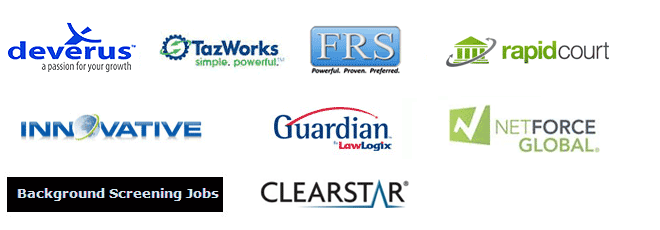

|  |
|
|
| |
|
Background
Screening Jobs |
|
Visit
the Job Board for the Employment and Tenant Screening Industry.
Here you will find resumes of people with industry experience
and employers seeking applicants with experience in Employment
and Tenant Screening and related businesses.
www.backgroundscreeningjobs.com


|
UPCOMING CONFERENCES, COURSES & EVENTS |
Feature
Education:
 |
FCRA
Basic Certification Webinar Series Update
The
FCRA Basic Certification program series is now available
for purchase.
For
more information |
2013 Events ( Click
Here to View full list of Events ) - Updated
Monthly
SHRM
State Conferences, visit
http://www.shrm.org/Conferences/StateAffilliateConferences/Pages/default.aspx
Drug
and Alcohol Testing Industry Association (DATIA), 2013 Training
Course Schedule, visit
http://datia.org
SAPAA
Training Institute Learning Events, http://www.sapaa.com/
CUPA-HR
Conferences: http://www.cupahr.org/
World
Federation of People Management Associations, Events,
http://www.wfpma.com/events/by-region#quicktabs-tab-view__events__page_3-4
|
 Apa khabar? (How are you?)
Apa khabar? (How are you?) 









 Kevin Coy is a Partner in the Washington DC office of Arnall
Golden Gregory LLP. Kevin advises background screening
companies and other clients on a wide range of privacy and consumer
regulatory issues, including Fair Credit Reporting Act, Gramm
Leach Bliley Act, Drivers' Privacy Protection Act, and Dodd Frank
Act compliance issues, as well as data breach matters. Kevin also
represents clients with matters before the Federal Trade Commission,
the Consumer Financial Protection Bureau, and other consumer protection
agencies.
Kevin Coy is a Partner in the Washington DC office of Arnall
Golden Gregory LLP. Kevin advises background screening
companies and other clients on a wide range of privacy and consumer
regulatory issues, including Fair Credit Reporting Act, Gramm
Leach Bliley Act, Drivers' Privacy Protection Act, and Dodd Frank
Act compliance issues, as well as data breach matters. Kevin also
represents clients with matters before the Federal Trade Commission,
the Consumer Financial Protection Bureau, and other consumer protection
agencies. 


 The #1 Web Site Success Factor
The #1 Web Site Success Factor




